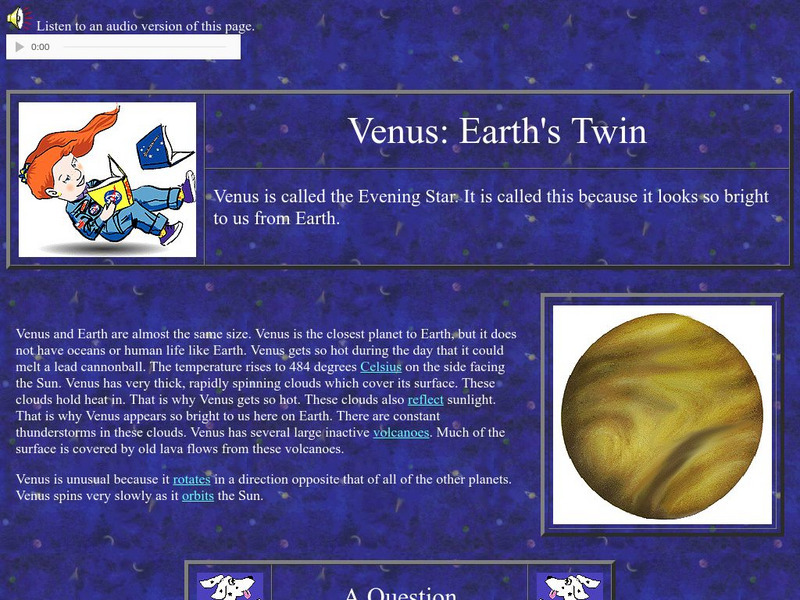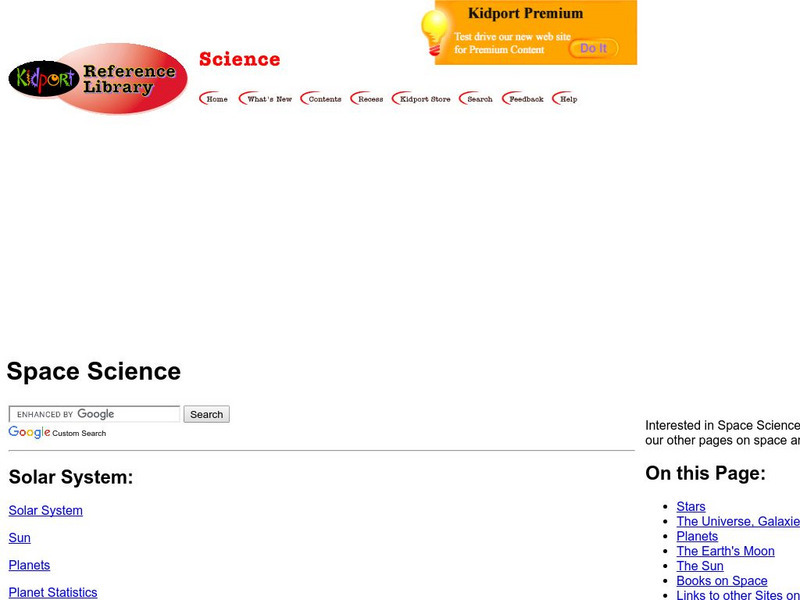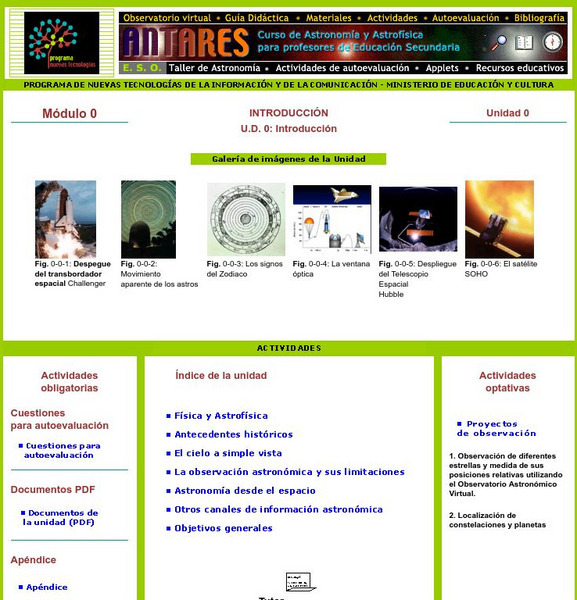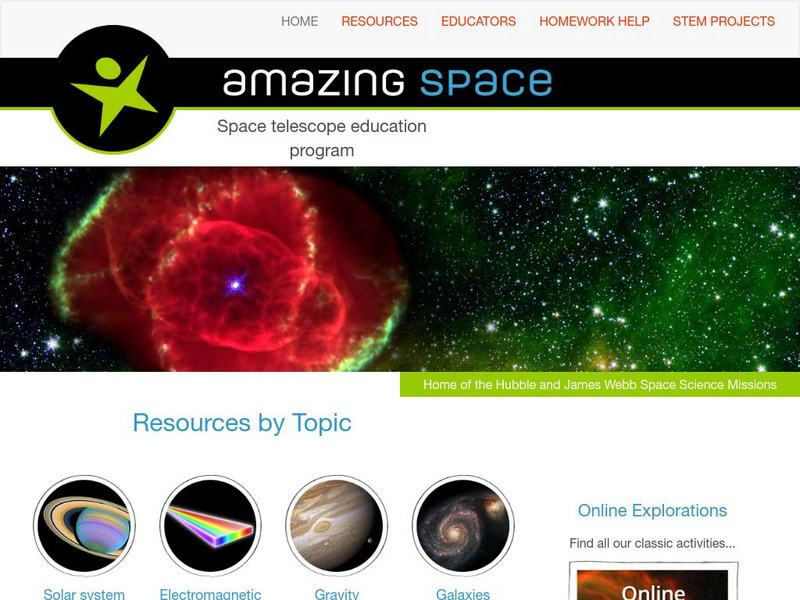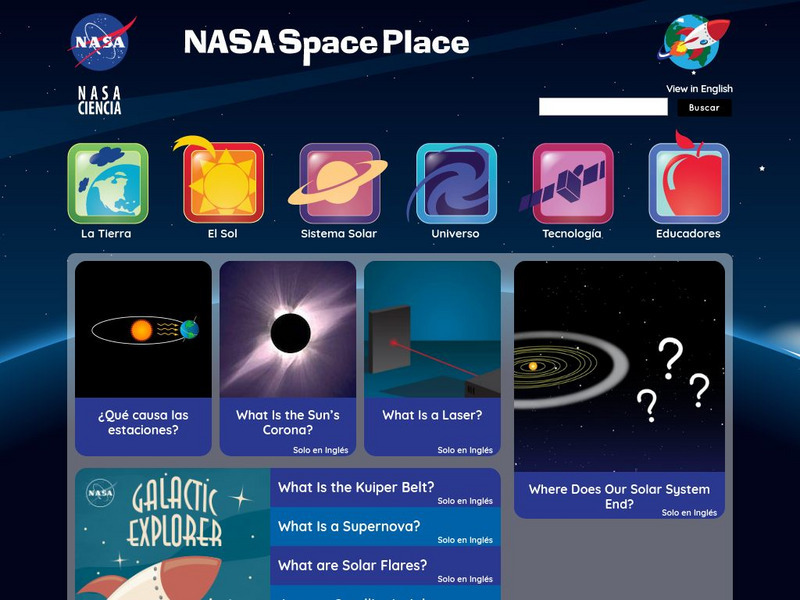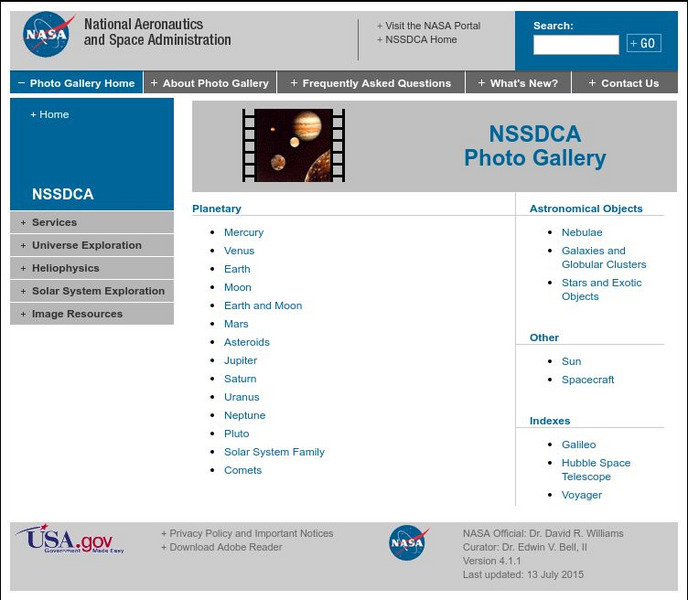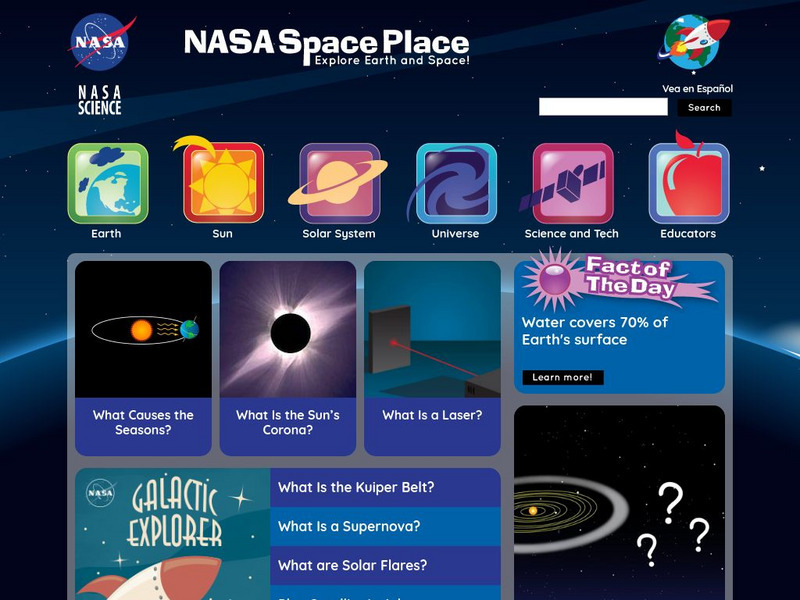Hi, what do you want to do?
NASA
Nasa Star Child: The Planet Mercury
Basic facts about the planet Mercury including its size, its name, and its atmosphere. Includes a discussion question on its visibility from Earth, with facts, and the answer. A linked page covers similar material in a "Level 2" version,...
ClassFlow
Class Flow: Stars 1 5
[Free Registration/Login Required] Making sets of stars to match the numbers 1-5.
NASA
Nasa Star Child: Neptune, the Blue Planet (Level 1)
An introduction to Neptune for young students. Audio content, a glossary, graphics, and a printable version are all included.
NASA
Nasa Star Child: The Planet Venus
Basic facts about the planet Venus including its temperature, its atmosphere, and its volcanoes. Includes a discussion question on temperature, with facts, and the answer. A linked page covers similar material in a "Level 2" version, and...
Nine Planets
The Nine Planets: Sun Picture List
Various pictures and movies of the sun. Download some of these files and then give a presentation to your class explaining the solar phenomena.
Teacher Planet
Teacher Planet: Flag Day
Many lesson plans, units, activities, worksheets, and links to other resources are featured for teachers interested in educating about Flag day.
Kidport
Kidport: Space Science
This complete resource will help students to improve their understand of space exploration. Includes images of the universe, galaxies, stars and planets.
Ministerio de Educación (Spain)
Ministerio De Educacion: Introduccion Modulo 0
Observe different stars and measure its relative position utilizing the Virtual Astronomical Observatory.
Space Telescope Science Institute
Space Telescope Science Institute: Amazing Space
Amazing Space promotes the "science and majestic beauty of the universe for use in the classroom." Here you can find learning activities, lesson plans, teaching guides, and helpful tips for students eager to learn about space and space...
NASA
Nasa Space Place: What Is an Exoplanet?
Defines exoplanets and explains how astronomers go about looking for them.
Other
Canal Kids: Ciencias (Science for Portuguese Speakers)
Colorful, engagingly written information about astronomy and biology for Portuguese-speaking English language learners. Both subjects are broken down into a broad array of related subtopics. The biology section is particularly helpful...
NASA
Nasa Star Child: Planet Hop
Figure out your age and your weight on all the planets in the solar system using the formulas given here. Then type them into the correct place, and let the computer check to see if you are correct.
NASA
Nasa Star Child: The Planet Earth
Facts about the Earth including its orbit, its atmosphere, and its landforms. Includes a discussion question on seasons, with facts about them, and the answer. A linked page covers similar material in a "Level 2" version, and has a...
Cornell University
Cornell University: Astronomy: Orbital Motion and Kepler's Laws
At this site from the Astronomy Department of Cornell University, Kepler's three laws of planetary motion are stated. There are brief explanations of each, along with links to additional information on related subjects.
PBS
Pbs Learning Media: Solar System Scale Model
Teach the concept of scale models and the size of the solar system through this extensive lesson plan. Students will learn about scale models, estimate which objects to use to create a scale model of Earth and Sun, and figure out how far...
NASA
Nasa Space Place: El Space Place
NASA's space science site for kids - en Espanol. Features a wide range of activities, including games, projects, animations, and more. Also contains useful information on basic physics, chemistry, and other natural sciences, offering...
BBC
Bb Ci Space: Solar System
Take a journey through the solar system with this interactive guide. Includes planetary history, "travel information," "tourist highlights," and video clips. Games and quizzes include a Solar System jigsaw that prompts the student to...
NASA
Nasa Space Science Data Archive: Photo Gallery
A website featuring a collection of images from NASA. Collection includes images of planets, comets, nebulae, galaxies, stars, sun, and spacecrafts.
Other
Celestia
This site provides a free space simulation that lets you explore the universe in three dimensions. There is a forum for teachers and lesson plans that help enhance student use of the simulation. A program must be downloaded in order to...
NASA
Nasa: Image Science Center: Ask the Space Scientist
A NASA scientist, Dr. Sten Odenwald, answers many students' questions. Topics include planets, galaxies, black holes, the origin of the universe, and common misconceptions about space.
NASA
Nasa: Students K 4
NASA-sponsored coverage and research on a range of topics related to space exploration -- flying weather stations, comets, first steps on the Moon, and other space-related topics -- are presented in age-appropriate activities, lesson...
NASA
Nasa: The Space Place
This site from NASA's Space Place is geared towards early elementary learners. It offers detailed instructions for crafts and activities related to space, games and a teacher resource area. Students can also ask an expert at this site.
California Institute of Technology
Spitzer Science Center: Is There Anybody Home?
This image, titled "Is There Anybody Home?" features six fuzzy pictures depicting six stars associated with known planets. The text under the image details various specifics about the picture and the planetary system associated with the...
Enchanted Learning
Enchanted Learning: Zoom Astronomy
Where is our Solar System? How far away is the sun? What makes up the sun? Find out all you want to know about our solar system. This is a comprehensive on-line site about space and astronomy. Check out all of the excitement!
Other popular searches
- Stars and Planets
- Space, Stars and Planets
- The Stars and Planets
- Stars and Planets Worksheets
- Compare Stars and Planets
- Stars and Planets Puzzles
- Space Stars and Planets
- Space\, Stars and Planets
- Comparing Planets and Stars
- Space\\, Stars and Planets








